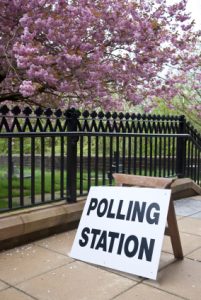“Think Global, Act Local” is as relevant today as it was in 1992
 In May’s local elections, anti-Net Zero party Reform UK took control of 10 UK Councils. This month the party has started to dismantle Net Zero programmes across those authorities, arguing that tackling climate change is a national issue, not one for Councils, who should concentrate on emptying the bins. As someone with 20 years’ experience as a Councillor, my hackles began to rise…
In May’s local elections, anti-Net Zero party Reform UK took control of 10 UK Councils. This month the party has started to dismantle Net Zero programmes across those authorities, arguing that tackling climate change is a national issue, not one for Councils, who should concentrate on emptying the bins. As someone with 20 years’ experience as a Councillor, my hackles began to rise…
One of the biggest myths in politics is that Councils don’t have much responsibility – and Councillors are just a bunch of self-aggrandising do-gooders/busybodies. OK, who is responsible for child protection in this country? Adult social care? Public health? Planning? Local transport? Social housing? Emergency response? And the last five of these, along with ’emptying the bins’, are critical to delivering Net Zero. As the old saying goes, all politics is local.
The slogan “Think Global, Act Local” emerged in the environmental activism of the late 1970s, but came to prominence as the underpinning principle of Local Agenda 21, launched at the original Rio Earth Summit in 1992. The idea was that, yes, Governments can make international agreements, but the actual transformations will happen at a local level.
For example, the shape of our settlements determines our daily travel patterns – ie where our homes, work places, schools/colleges, shopping centres etc are located relative to each other – a classic planning issue. The 15-minute city concept encourages the co-location of such nodes so everything is on our doorstep, rather than having people schlepping across town to/from distant schools, out-of-town business parks and/or retail centres every day.
Once the nodes are located, the transport infrastructure between them will also influence how people travel. I once visited a friend in the US who had no pedestrian route whatsoever between his housing estate and the local railway station a mere mile away, enforcing car dependency – a footpath and a crossing over/under the 10-lane interstate en route would have opened up low carbon travel. Cycle infrastructure facilitates active travel. Bus lanes on major routes will encourage people to leave the car behind and get to their destinations more quickly and with a much smaller carbon footprint. All local issues requiring local decisions.
Unfortunately, in practice much of Local Agenda 21 manifested itself as nice people helping other nice people develop nice community projects in addition to, rather than fundamentally changing, ‘business as usual’ at Local Authorities. If you challenged, say, why a Local Authority wasn’t following the transport hierarchy, you’d get pointed towards a community garden (with a grid-locked road over the fence). The fact that LA21 became the subject of apocalyptic conspiracy theories is hilarious – it never really changed anything; indeed it was often used as cover for not changing anything.
We need to get back to the essence of Think Global, Act Local. Local authorities around the world need both the powers and the incentives to change, and then to get on with it. Then we might get somewhere.

